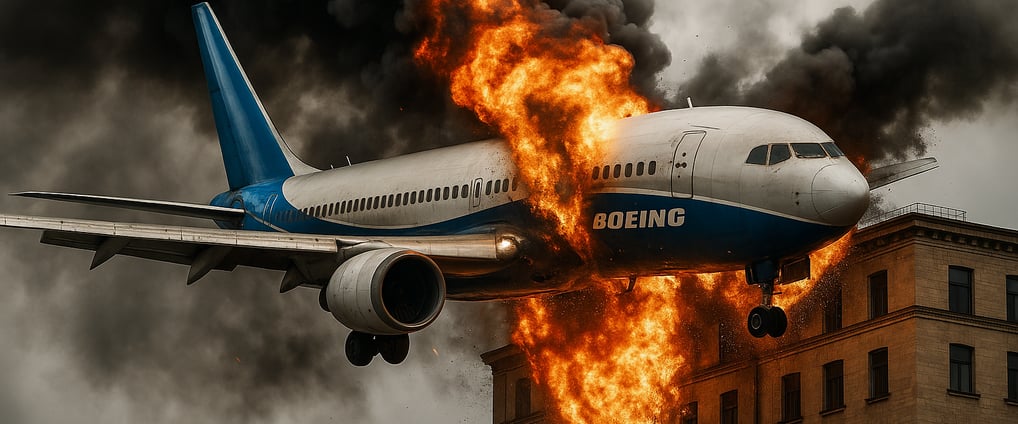Airline Safety Tips 2025 | How to Stay Safe While Flying
Learn how to fly safely in 2025 with updated airline safety tips, expert advice, and what to know amid Boeing crash reports and growing global concerns.


Flying remains one of the safest modes of transportation—but recent headlines have shaken traveler confidence. The tragic Boeing crash in India, along with other high-profile aviation incidents globally, have raised serious questions: Are planes still safe? What should passengers know before boarding?
As a trusted hub for travel safety, SafeTrekker brings you expert-backed insights to help you stay informed, alert, and secure on every flight.
Recent Airline Incidents: What Happened?
In early 2025, a Boeing aircraft crash in India resulted in significant loss of life. Preliminary investigations suggest mechanical failure and regulatory oversight gaps. This tragedy followed a series of smaller, but troubling, incidents involving other Boeing models and raised global scrutiny of aircraft safety.
While aviation authorities assure that air travel remains statistically safe, these events highlight the importance of knowing how to assess airline safety for yourself.
Key Airline Safety Tips Every Traveler Should Follow
1. Research Your Airline’s Safety Record
Check credible sources like AirlineRatings.com or ICAO audits. Look at the airline’s crash history, pilot training programs, and fleet maintenance data.
2. Understand Aircraft Models
Not all aircraft are created equal. Boeing 737 MAX models have been under fire globally. Before booking, search your flight number online to identify the aircraft type. Choose airlines using newer, well-reviewed aircraft when possible.
3. Choose Direct Flights Over Layovers
Fewer takeoffs and landings mean reduced risk. Direct flights may cost more but statistically carry fewer opportunities for mishaps.
4. Pay Attention During Safety Briefings
Even frequent fliers should watch airline safety videos and read the safety card. Know your exits, brace positions, and how to use oxygen masks and life vests.
5. Keep Essentials Accessible
Keep your passport, emergency contacts, medications, and a small flashlight in a seat-back pouch or personal item. In the event of an emergency, every second matters.
6. Use a Travel Safety App
Apps like FlightAware and Flightradar24 provide real-time flight tracking. Others like Sitata give you alerts on disruptions, accidents, and safety concerns.
7. Book With Reputable Travel Platforms
Avoid discount platforms that don’t disclose carrier details. Use reputable booking engines that provide safety transparency.
8. Review Airline COVID/Post-COVID Protocols
Even in 2025, some carriers still vary widely in health practices. Opt for airlines that follow WHO or IATA guidelines.
Should You Avoid Flying Boeing Aircraft?
While it’s premature to blacklist Boeing entirely, caution is advised. If recent models or specific flight routes concern you, consider airlines using Airbus or Embraer fleets. Always check safety notices and recall bulletins.
What to Do If You Feel Unsafe Before or During a Flight
Speak with a flight attendant if something feels wrong.
Request a seat change if you're near an emergency exit and feel unfit to assist.
If you notice mechanical noises or leaks before takeoff, inform the crew.
Final Thoughts: Travel Informed, Not Fearful
Flying in 2025 still ranks as incredibly safe compared to driving, boating, or even rail travel. But the recent Boeing incidents remind us that being an informed traveler is your best defense.
At SafeTrekker, we prioritize facts over fear and give you real-world safety tools for smarter travel. Use this guide to fly with peace of mind, knowing you've done everything possible to protect yourself.
Stay alert. Fly wisely. Trust SafeTrekker.
Explore
Your trusted companion for safe, smart, and budget-friendly travel adventures. Explore the world with confidence through our expert safety guides and tips.
Quick Links
Subscribe
contact@safetrekker.com
© 2025. All rights reserved.
